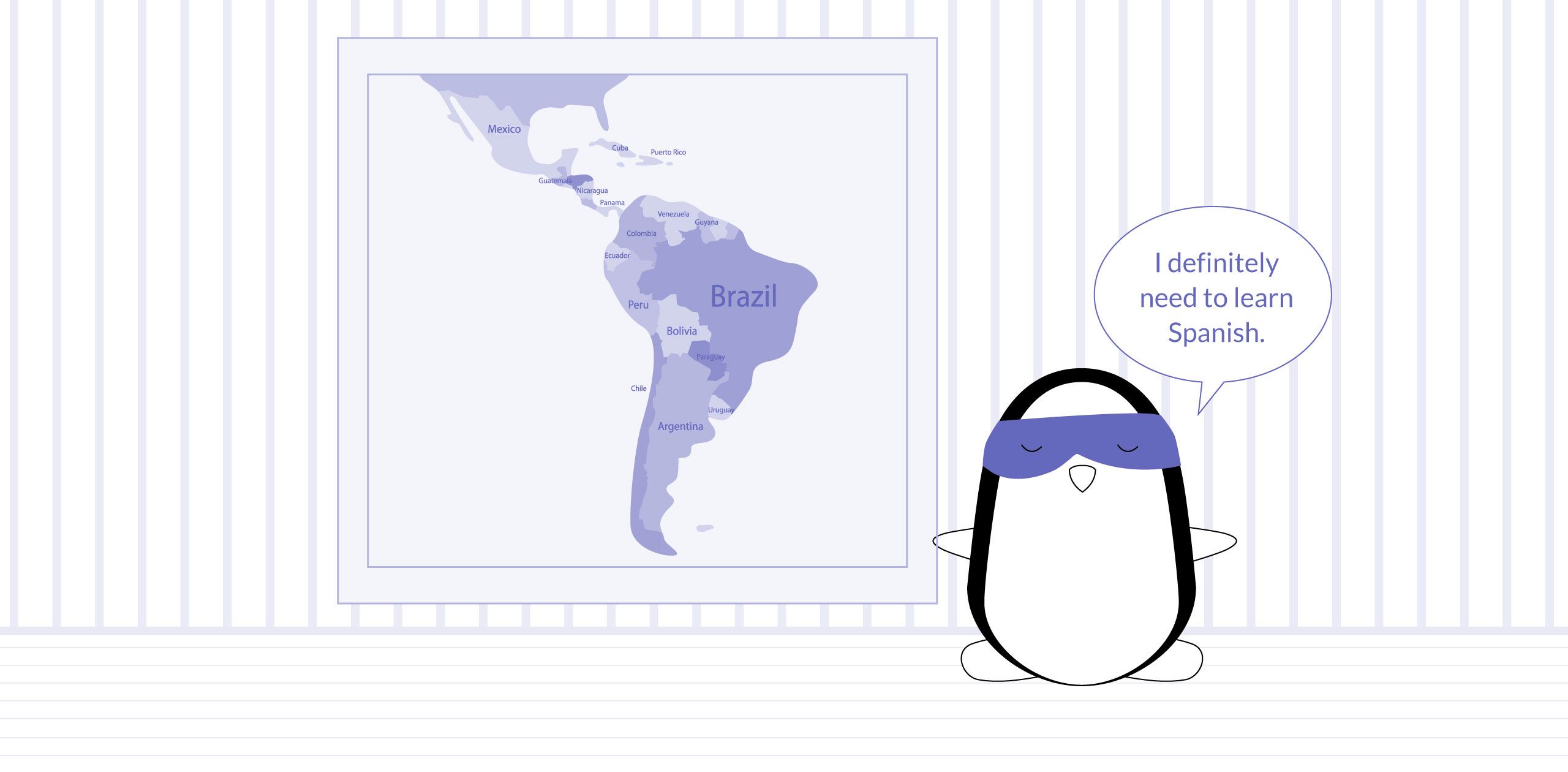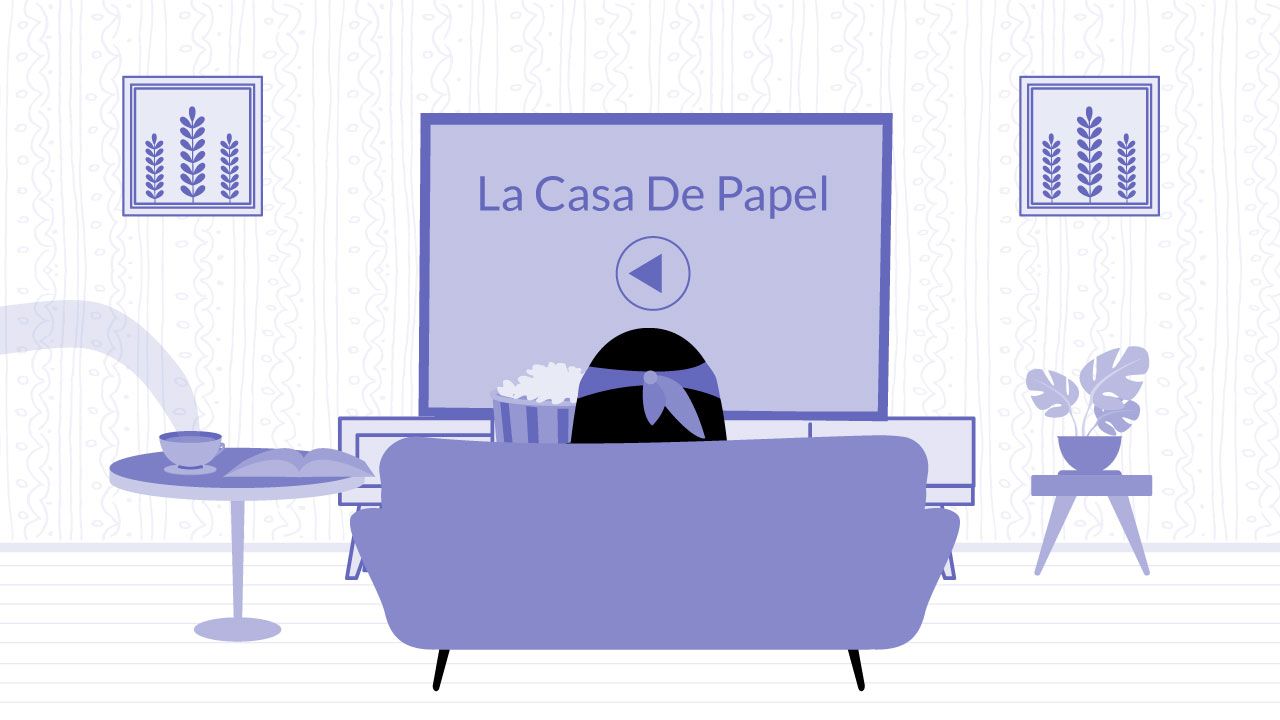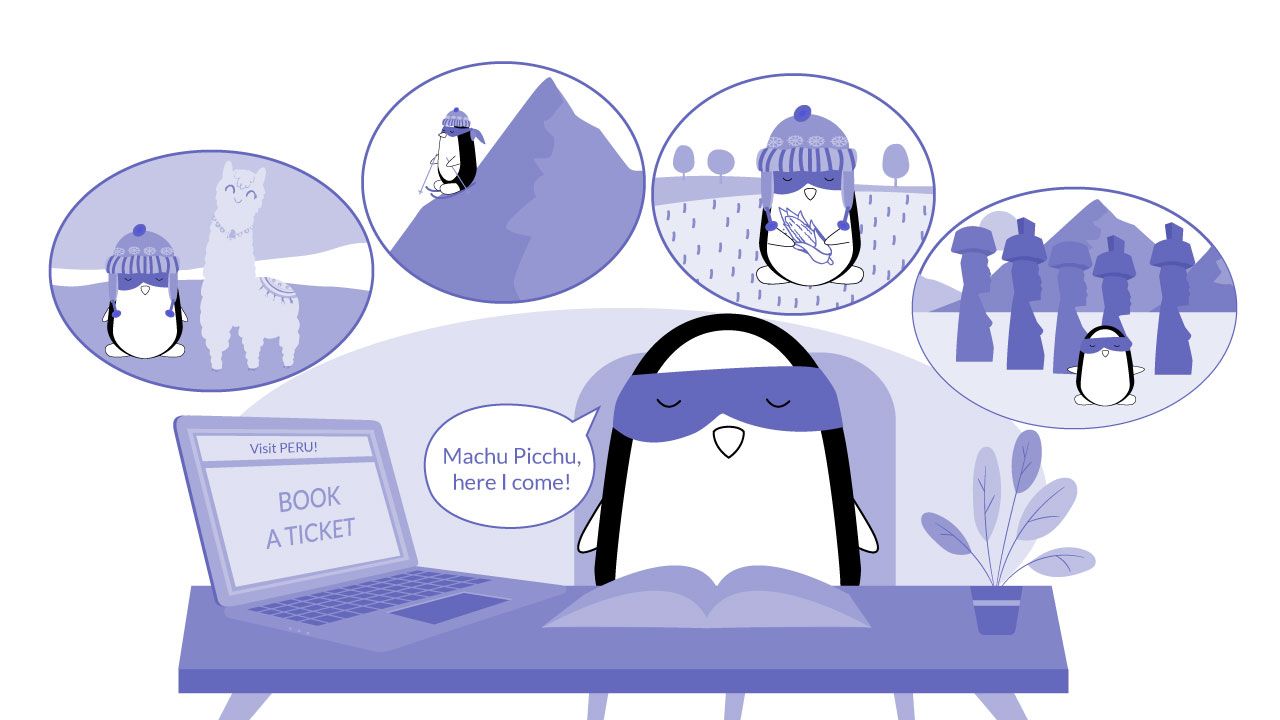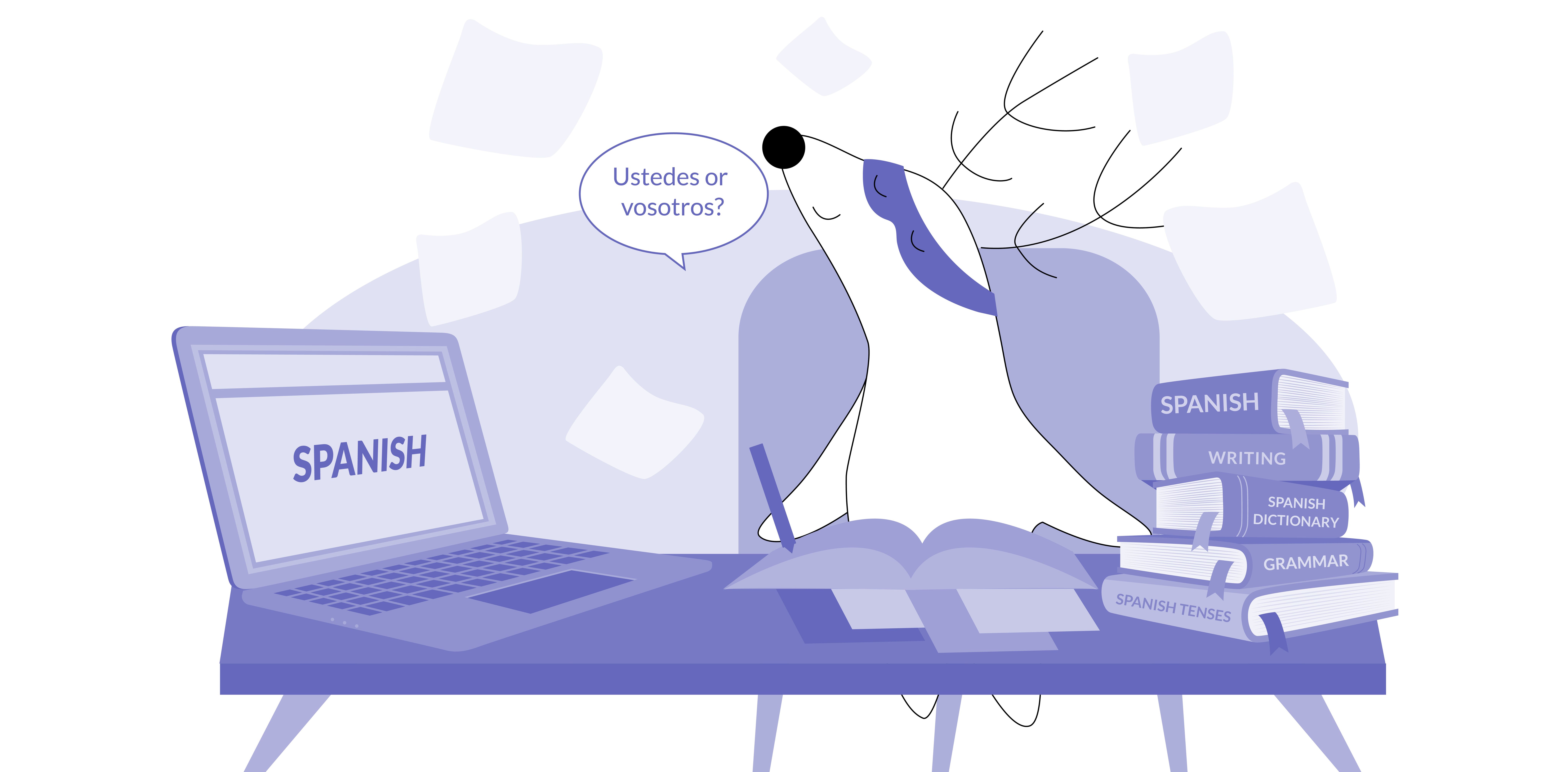
In today's world, it gives you an incredible advantage to be able to speak multiple languages. Spanish is the second most widely spoken language in the world, with 483 million of native Spanish speakers from 21 spanish-speaking countries on the planet. This means learning how to speak Spanish can be incredibly useful.
However, many people find the task of learning a foreign language daunting. It can be hard to know where to start or how to keep up with a language learning routine.
But don't worry, learning Spanish doesn't have to be difficult or expensive. There are many ways you can learn Spanish online, whether you're looking for free resources or paid online Spanish classes. With a little bit of dedication and effort, you'll be speaking Spanish in no time.
Here are some actionable tips on how to learn Spanish online effectively.
Learn Spanish with Langster
Determine Your Needs and Set Realistic Goals
If you're looking to learn Spanish online, there are many different ways beginner Spanish learners can go about it. You can find free resources all over the internet, or you can invest in a paid Spanish course that will give you more structure and accountability.
No matter which route you choose, make sure it addresses your Spanish language learning needs. You will need to assess your Spanish level and set realistic goals. Learning a foreign language takes time and effort, but it's definitely doable with the right approach.
When you're first starting out, it's important to set achievable, SMART goals. Don't try to bite off more than you can chew by setting unrealistic expectations towards your Spanish learning journey.
For example, if you want to be able to have basic conversations in Spanish, start by focusing on learning key Spanish words and phrases. Once you feel comfortable with basic Spanish, you can start working on Spanish grammar and sentence structure.
It's better to avoid vague goals like "I want to improve my Spanish language skills" and set specific milestones, such as "I want to focus on my professional Spanish vocabulary during the next two months" or “I want to master my Spanish pronunciation for a job interview.”
This way, you can track your progress and feel a sense of accomplishment as you reach each goal.
Stick to a Schedule
Although a plethora of online sources let you learn Spanish anytime, in order to make progress in your language learning journey, you must stick to a schedule. If you're only studying when you feel like it, you're not going to make as much progress as you'd like.
Dedicate at least 30 minutes every day to study Spanish. If you can't do that, try for a few hours every week. The more time you can dedicate to studying, the better.
There are lots of ways you can fit Spanish into your schedule. You can wake up 30 minutes earlier and use that time to review vocabulary words or learn how to conjugate Spanish verbs. You can also listen to Spanish podcasts during your commute or even watch TV shows and movies in Spanish to immerse yourself in the language.
The important thing is to find a schedule that works for you and stick to it.

Use Free Online Resources
There are so many great and completely free online resources that you can use to learn Spanish. If you're just starting out, Duolingo is a great option. It's a free app that you can use to learn the basics of Spanish.
Once you've mastered Spanish basics, you can start using more advanced Spanish resources like News in Slow Spanish – a podcast designed for intermediate and advanced learners. Each episode features a news story that is read slowly so that people learning Spanish can understand it.
In addition to podcasts, check out the many YouTube channels that you can use to learn Spanish. One of our favorites is Español Automatico. The videos on this channel are designed to help you learn Spanish in a fun and engaging way.
You can also look into free online Spanish courses. Free Spanish lessons don't offer the same level of structure and accountability as paid courses, they can still be a great addition to your Spanish learning routine.
Also, you can find online resources like Coffee Break Spanish – websites that offer an extensive amount of educational materials, such as worksheets and exercises, for free and only require payment if you want to access more advanced levels.
There are many free resources available online that can help you learn Spanish. If you're just starting out your foreign language journey, try listening to podcasts and Spanish music or watching YouTube videos in Spanish. And once you’re feeling confident in the basics, you can move on to reading Spanish news articles or books.
Invest in a Paid Course
While there are plenty of great free online resources, there are also benefits to investing in a paid course. For one, paid courses usually offer more structure than free resources. This can be helpful if you're struggling to stay motivated and stick to a schedule.
Paid courses also tend to come with additional resources, such as e-books, audio lessons, tutor support, and access to a community of other learners. This can make the learning process more fun and engaging and effectively boost your Spanish fluency.
Some of the best paid Spanish classes you can find online are those offered by Babbel and Rocket Languages. They both offer high-quality courses that are designed to help you learn Spanish in an engaging and effective way.
Watch TV Shows and Movies in Spanish
One of the best ways to improve your Spanish skills is to watch TV shows and movies in Spanish with Spanish subtitles. This will help you get used to hearing the language spoken at a natural pace. It's also a great way to learn about Spanish culture and pick up new Spanish phrases.
Imitate What You Hear
When you watch a TV show or movie in Spanish, it's important to imitate what you hear. This means trying to mimic the accent and intonation as best you can. This may feel strange at first, but it's actually a great way to improve your pronunciation.
You can also use imitation to practice your listening skills. Whenever you hear a native Spanish speaker speaking, pay attention to the words they use and the way they say them. Then, try to imitate what you heard. This will help you improve your listening comprehension and increase your vocabulary.

Get a Language Partner
One of the best ways to practice your Spanish skills is to find a language partner. This is someone with whom you can practice speaking on a regular basis. Ideally, they should be at a similar level as you, so that you can help each other out.
If you don't know anyone who speaks Spanish, there are a number of online resources that can help you find a language partner. For example, Tandem connects language learners from all over the world.
You can also try looking for meetups in your city. These are groups of people who get together to practice Spanish (or any other language). It's a great way to meet new people and learn about different cultures, and there are also plenty of online communities that do the same.
Join a Spanish Conversation Club
Another great way to practice your Spanish is to join a conversation club. These are usually run by schools. They provide a space for people to come together and practice their conversation skills.
If you're not sure if there is a conversation club in your area, you can always start your own. All you need is a group of people who want to practice Spanish, and a venue. You can even hold it online if you can't find a physical location.
Find a Spanish Tutor
If you're serious about learning Spanish, then you may want to consider finding a native Spanish tutor. A tutor can help you learn the language more quickly and effectively. They can also give you personalized attention that you may not be able to find in a classroom setting.
It’s easy to find a Spanish tutor, but with so many language learning platforms and online schools out there, searching for an online tutor shouldn’t be a problem.
However, once you've found a few potential tutors, be sure to interview them to find someone who suits your needs. For example, you may want to deal with Spanish grammar or dedicate more time to conversational Spanish, so you need a person that has suitable materials and experience.
Use Technology to Your Advantage
There are a number of great technology resources that can help you learn Spanish. For example, there are apps that you can use to practice your listening and speaking skills. Some of the best ones are Duolingo, Babbel, and Lingvist, and don’t forget about our *Langster* app for learning Spanish with stories!
You can also find a ton of websites that offer Spanish lessons. For example, LiveMocha and Busuu offer a variety of different exercises to help you improve your language skills.
Finally, there are so many online dictionaries to help you in your journey. For example, WordReference and SpanishDict are both great resources for finding the right word or phrase.
Don't Be Afraid to Make Mistakes
One of the biggest reasons why people struggle to learn a foreign language is because they're afraid to make mistakes. They worry that they'll say something wrong and sound foolish.
The truth is, everyone makes mistakes when they're learning a new language. It's all part of the process. So don't be afraid to make them – what’s more, let yourself do it. Making mistakes and actually revising and correcting them is one of the most effective methods to learn a new language.
With such an approach, the more you practice, the less mistakes you'll make.

Don’t Give Up: Practice, Practice, Practice
Learning a foreign language can be challenging, but it's important to persevere. Even if you have setbacks or hit a plateau, don't give up on your language learning goals. With patience and practice, you'll be speaking Spanish like a pro in no time.
One of the best ways to learn Spanish is to practice as often as possible. Whenever you have a chance, try to speak Spanish with native speakers or other learners. You can also practice writing skills by posting on your social media in Spanish or keeping a blog in Spanish. The more you use the language, the more natural it will feel.
Don't forget to also practice your listening skills. A great way to do this is to watch movies and TV shows in Spanish or listen to Spanish songs or podcasts hosted by native Spanish speakers.
The Bottom Line
Learning a foreign language can be a daunting task, but it doesn't have to be. If you're looking for ways to learn Spanish online, there are many different methods you can go about it.

You can find free resources all over the internet, or you can invest in paid online Spanish classes that will provide structure and accountability. Also, you can diversify your learning experience by listening to podcasts in Spanish to improve your listening skills or watching video content to expand your vocabulary.
Whether you’re planning to move to a Spanish-speaking country or preparing for the exams. setting realistic goals and sticking to a schedule should be a priority. Of course, don't forget to practice, practice, practice – even just one new Spanish word a day can make a big impact on your Spanish language journey.
With these tips in mind, you'll be on your way to speaking Spanish fluently in no time. ¡Buena suerte!









